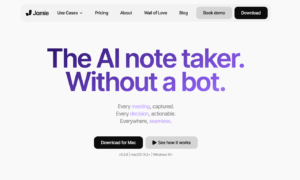In recent years, the global workforce has witnessed a seismic shift that was once thought unimaginable. Remote jobs, once a coveted perk, has transformed into a mainstream modus operandi for professionals worldwide. The question is no longer if one can work remotely, but how to optimize and thrive in this new professional landscape.
The Allure of Remote Jobs
The idea of working in pajamas, setting up a mobile office on a sun-soaked beach, or circumventing the dreaded daily commute has undeniable charm. But the attraction of remote work goes far beyond these picturesque scenarios. For many, remote jobs offer:
- Flexibility: Remote work often allows for adjustable hours. This flexibility can lead to a more balanced and fulfilling life, where professionals can align their work schedules with their personal rhythms and commitments.
- Diverse Opportunities: Remote jobs grant access to a global marketplace of roles and industries that might have been previously inaccessible due to geographical constraints.
- Cost Savings: Commuting costs, daily lunches, and professional attire expenses diminish, allowing remote workers to redirect their spending or save more.
- Improved Productivity: Contrary to some stereotypes, many remote workers report increased productivity. Without office distractions and the fatigue of commuting, many find themselves completing tasks more efficiently.
The Power of Technology in Remote Work
A cornerstone of the remote work revolution is, without doubt, technological advancement. Platforms like Zoom, Slack, and Trello have made collaboration from afar not just possible, but often seamless. The continued improvement of internet speeds, the proliferation of cloud storage, and the rapid evolution of collaborative software have leveled the playing field. It’s now possible to hold team meetings with participants spread across continents, to co-edit documents in real-time, and to manage projects with dispersed teams efficiently.
Catering to a Diverse Workforce
Remote work isn’t just a boon for employers seeking to reduce overhead costs; it’s also an inclusive strategy. Professionals with disabilities, caregivers who require flexible schedules, and those living in areas with fewer job opportunities can now access roles that cater to their expertise and circumstances. The remote work paradigm, therefore, isn’t merely a trend; it’s a progressive step towards a more inclusive global job market.
Remote Work Challenges and Solutions
However, as with any transformative movement, there are challenges. The boundaries between work and personal life can blur, leading to burnout. There’s also the potential for feelings of isolation, and not all jobs can transition smoothly to a remote setup.
But with challenges come solutions:
- Set Boundaries: Use specific apps for work, designate a particular space in your home for work, and set working hours to ensure work-life balance.
- Regular Check-ins:Weekly video meetings or virtual coffee breaks can foster team cohesion and counter feelings of isolation.
- Continuous Learning:Professionals can attend online courses or workshops to adapt to the ever-evolving tools and best practices of remote work.
The Future is Remote
While the exact configuration of remote work in the coming years remains uncertain, its prominence is undeniable. As companies continue to see the value in a satisfied, diverse, and expansive workforce, and as technology continues to bridge gaps, remote jobs will continue to multiply.
Moreover, the very definition of ‘professionalism’ is undergoing a transformation. We’re shifting from a world where one’s commitment was often measured by physical presence in an office to one where deliverables, impact, and collaboration hold more weight. This shift not only reflects a more profound respect for individual autonomy and life balance but also underscores a renewed emphasis on results and innovation.
Conclusion
The remote work phenomenon is much more than just a fleeting trend influenced by global events. It’s an emblem of an evolving professional world that prioritizes flexibility, inclusivity, and results. It’s a testament to human adaptability and the relentless march of technological progress. As boundaries continue to dissolve and the world becomes more interconnected, the remote job market promises a brighter, more inclusive future for professionals everywhere.



































